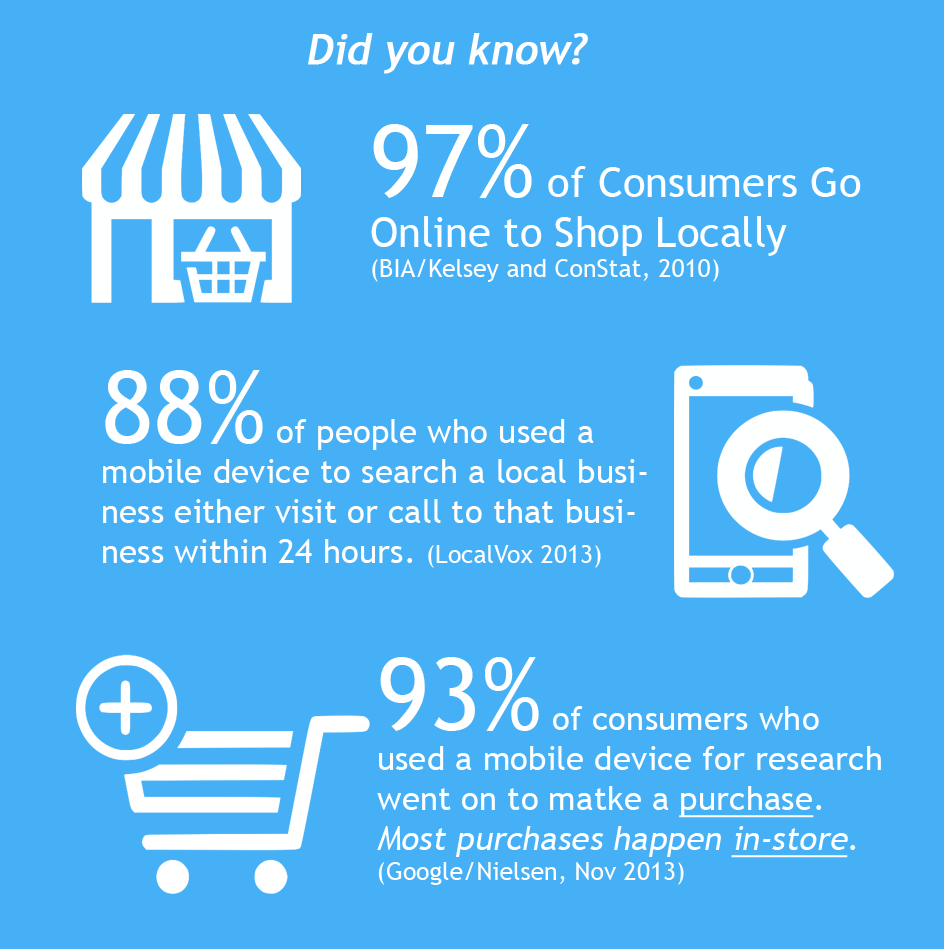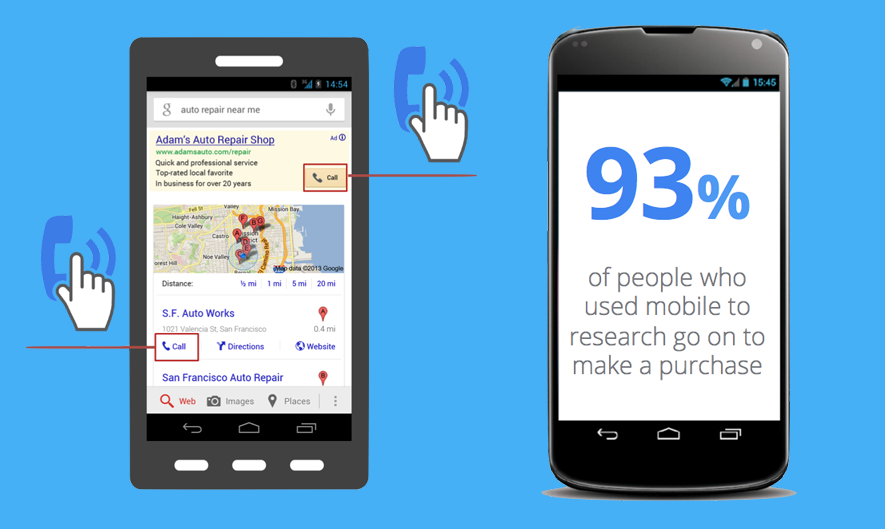
Local search brings real business!
If you’re a business owner, you probably already have a website but aren’t happy about the number of leads it brings you, and you know have to do more “stuff” to increase your Google rankings and attract more business. But all you really want is a website that is:
- Easy for you to update
- That your customers will love to use
- Has lots of web traffic
- Brings you leads 24/7
- And that Google ranks on page 1
It doesn’t seem like you’re asking for too much, but due to constantly evolving nature of the internet, it can be very complicated to achieve these results. In other words, you need some help to get you on the right path.
So I’ve put together a guide on the…
Top 10 Mistakes Business Owners Make with their Website
Avoid these common pitfalls and not only will you have a great website that makes you money, but you’ll have an automated virtual salesforce that works for your business around the clock, you’ll be ahead of your competition, and your customers will love you.
#10 Treating Your Website As An Afterthought
- Most websites are really just an online brochure. “Brochure websites” don’t get ranked on Search Engines like Google and Bing.
- Your website is the central core of your marketing strategy. It often sets the first impression of your company to customers, investors and prospective employees.
- Customers will use your website as point of reference when making their buying decision, and if need your help to differentiate your business from the others.
- “Brochure websites” fail because it’s all about you, and rarely address the changing needs of your customers.
#9 Not Tracking Return-on-Investment
- Made easy and free using Google Analytics. You’re likely wasting money every day by not tracking which of your investments are producing a loss and cutting those out.
- Track your search rankings, unique visits, time on site, leads and conversions if you want to improve results.
What gets measured gets managed.
~ Peter Drucker
#8 Missing Local Address Information
- Have your address on the footer of every single page of your website at minimum.
- Local address info quickly builds trust with prospective customers as you’ll be seen as a local provider.
- Google Places and other local online directories need to confirm your physical address info listed on your website.
- Over 4 in 5 people use their smartphone to search for local businesses, so you need to make sure to your local contact info is easily accessible.
#7 Missing Trust Signals
- People will seek the unbiased opinions of others when making a buying decision, and look for social proof before buying from you.
- Include “trust” icons such as Yelp, Facebook, BBB, industry awards, and even chamber associations to build trust and credibility

#6 A weak Call to Action!
- You have less then 15 seconds to engage a new visitor using your website! You’ve already worked very hard to get visitors onto your website so don’t risk the chance of losing them. Give them a clear path of how to buy from you.
- Use traffic magnets such as an ebook, video tutorials, or downloadable guides to to collect their name and email.
- Use lead gen forms on every page. Not everyone is comfortable filling out contact forms, or calling phone numbers, or using a live chat box, or sharing their email address, so make sure you provide different ways for a customer to reach you.
![]()
#5 Prioritizing Design over User Experience
- Studies have also show that “uglier looking” sites that are simple to use, regularly outperform flashy sites that are hard to navigate.
- Navigation bar should always be near the top of the website.
- Make sure your website loads fast.
- Use white space to strengthen your message.
#4 Ignoring SEO Basics
- Not Identifying which keywords your website will be targeting. This isn’t a decision where you select keywords out of thin air but rather selected using keyword research tools.
- Businesses that don’t follow SEO basics may have a great-looking website, but that no one visits.
- Page titles: Use your target keywords on the title of every page.
- Content: Include your keywords in your content, such as in your articles, web pages, video descriptions, etc.
- Back-links: List your business in the right directories to boost your search engine rankings. This is important and basic, but it’s amazing how few business ever do this.
#3 Website built without a Content Management System
- A CMS allows any staff member without any technical knowledge to easily update your website content.
- Without a CMS, you’ll either have to know how to write own code to update the site, or contract a web designer to do this for you which can quickly become expensive.
- There are a handful of good ones with WordPress, Drupal, Joomla, Weebly being the most popular.
- We recommend and heavily use WordPress for most business websites.
#2 Not Adding Relevant Content for Your Audience.
- Because most business owners are buried in the day-to-day, many small business don’t make it a priority to add new content on a regular basis. If you want to be a successful business owner, you must take a moment from working IN your business to be working ON your business, which means doing marketing and strategy.
- Most failed sites end up being online brochures with boring information about me-me-me. A successful website will address the changing needs of your audience. Whether you educate them or entertain them, do it so your customers keep coming back to your website.
- Post a new article once per week… consider outsourcing rather than not publishing at all. There is no faster way to climb the search engine rankings.
#1 Hiring a “Web Designer” That Doesn’t Know Internet Marketing
- Web designer rarely know the the art and science of internet marketing.
- Most designers can’t do the right things to make your website rank up on search engines so that your website is able to attract new customers.
- You’ll likely spend thousands of dollars on a website that no one visits, and leave you frustrated because you thought you hired the right person.
- An analogy would be like building a luxury resort in the middle of the dessert. By simply avoiding this #1 mistake, you’ll avoid wasting your time and money.
Conclusion
The #1 purpose of having a website is to: GENERATE LEADS AND MAKE SALES. Avoid these top 10 mistakes and you’ll be miles ahead than most business owners and in your online strategy.
By having an effective website:
- You’ll pre-empt your competition by having a strong competitive advantage.
- You’re website will work 24/7, 365 days a year in bringing new business to you.
- New customers will come after you, instead of you having to hunt down for new customers.
- Increases in new leads, opportunities, inquiries, and checks-in-the-mail.
If you’d like help getting started with your website, feel free to contact me here.
